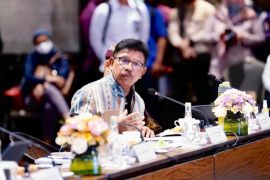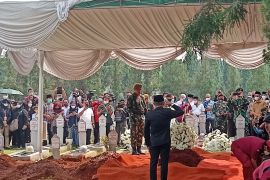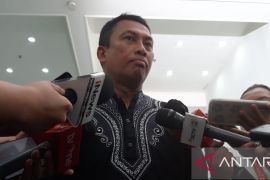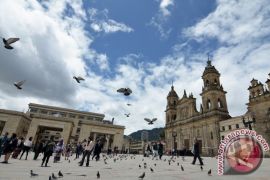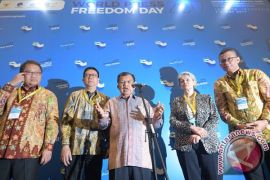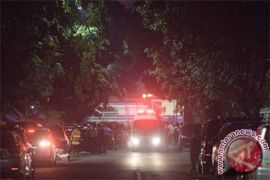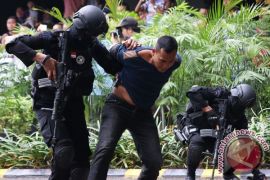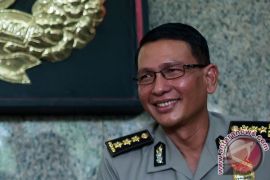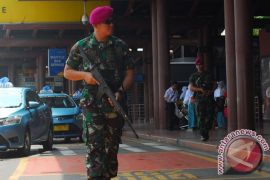The guidelines will explain the code of conduct for journalists when covering events related to terrorism.
"We hope the reporters have a code of conduct in covering terrorism acts because the police and the National Council for Combating Terrorism, BNPT, do not have regulation to command journalists," the Chairman of Law Commission for Indonesian Press Council Yosep Adi Prasetyo said here on Monday.
According to Yosep, the major purpose of the guidelines is to regulate the media crew to be careful in covering terrorist acts.
He added that if people are afraid and worried over the news of terrorism, then the reaction desired by the terrorists has been accomplished.
"Therefore, the major focus of a journalist is to prevent terrorism currently," Yosep noted.
He added that the media should also avoid live television broadcasts when covering terrorist arrests at the scene, as it can disturb the ambush operations strategy and endanger security forces as well as the lives of journalists themselves.
Yosep hopes terrorism coverage guidelines can be ratified during the Press Council Plenary Meeting in October 2014.
Chairman of Independent Journalists Association, Eko Maryadi, said the reporters need to prioritize lives while covering the arrest of terrorists.
Eko added that journalists should not exploit sadism and violence when covering terrorism arrests.
"Journalists need to understand that the media can be used as a propaganda tool by either terrorists, law enforcement agencies, or media owners. Therefore, they need to check the information when preparing the news," Eko said.
Several points that are included in the reporting guidelines of terrorism are journalists must prioritize safety of life, put public interest above journalism value, avoid glorifying of terrorist acts, and not broadcast live events that could disturb the arrest efforts.
Editor: Ade P Marboen
Copyright © ANTARA 2014
